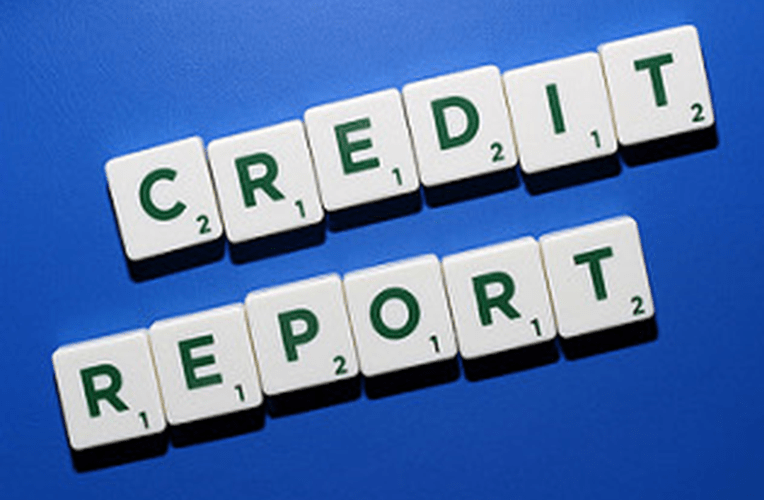If you note the title-it states How To Improve Your Credit Scores…
That is because you have more than one credit score. You have three, unless of course you have no credit history, or have a low amount of credit. Read on…post update 3-01-23
In reality, some people forget how important it is to pay all their credit obligations in a timely manner. They go to get a loan at the bank, or mortgage and find out they should have been more adherent to paying everything, in a timely manner. In our conversation today on how to improve your credit scores we are going to show you how to check your credit before you apply for financing.
You Can Improve Your Credit Yourself
Often people feel as if they have no choice but to either wait for their credit to improve on its own or seek professional help. However, it is worth trying to improve your credit score and clean up your credit all by yourself.
Not only can you do it yourself, but it’s also often better for your credit to do it yourself than to get professional help.
What does the process of repairing your credit report on your own look like? We are about to lend you some advice on some methods for how to improve your credit scores.
Start by Figuring Out Exactly What Needs to Be Done
- Go through your credit report and write down all the different items that you need to dispute. You can definitely get a free credit report online as you know.
- Disputing incorrect entries is easier than you might expect. Credit rating agencies are legally bound to research each and every single claim of inaccuracy.
- Go through the credit report from each reporting agency and note each inaccurate account.
Contact the Agencies
Most all communication can be done online. Make sure you keep records of every email you send in case you have to take further action in the future. Get a copy of your report to see exactly what is there.
Send the agency (Experian, Equifax, or Transunion), a listing of all inaccuracies and request that they either be removed and provide proof that the item is incorrect, or has been corrected.
Experian – 1-888-397-3742
Equifax – 1-888-548-7878
Transunion – 800-916-8800
Remember there are three as mentioned, and each agency may collect different information. In fact, usually, they do. That is why in mortgage lending, the lender will normally pull a tri-merged credit report using the middle credit score as the representative score.
The bureau will acknowledge your correspondence, and let you know when to expect an answer.
Note that sometimes reporting agencies will remove your item in 30 days and put it back in the report if they do not receive proof from the source of the discrepancy. If that’s the case, they’ll need to send you the proof. A letter or sufficient evidence informing you why the item was placed back on your report.
The latter is why you should contact the source so that all parties are clear on the issue.
Things To Remember
There are a few things that you have to take into account when you’re disputing credit report items on your own.
- First of all, are the time requirements. You need to carefully research every disputed item to ensure that it truly is incorrect.
- Then you need to provide any documentation you can and keep tabs on everything.
- Your corrected information needs to be followed up with the source of the discrepancy item. If you do not get in touch with the bank, loan company, tax lien authority, or whomever, your proof is not solid.
- This can include canceled checks, receipts, or even refund receipts. A tax lien paid receipt that has been paid or anything which can prove it is different than it has been reported.
Very often the lending agency forgets to go back and clear up something which was previously incorrect.
Improving Your Credit Score After Cleaning Up Your Credit
There are many different factors that go into your credit score, also known as the FICO score. Your FICO score is calculated based on your credit report by a formula created by the Fair Isaac Corporation.
There are factors that go into how your credit history is reviewed and here are a few of those items:
- Your utilization rate is basically “How much of your available credit are you using?”
- The theory is that if someone has credit lines of $10,000 and they’re using $9,500 of that credit, they’re identified as a credit risk over someone who’s only using $1,000. Therefore, their credit score would be lower.
- Another important facet of credit scores is how much credit you have, the type of credit you have as well as how these are paid in a timely manner. This includes if you have tons of revolving credit, versus installment loans, and a mortgage.
The Importance of Credit Utilization in How To Improve Your Credit Scores
Rather than measuring your average utilization rate, FICO chooses to measure your score based on your highest utilization rate.
For example, let’s say you have two credit cards. Both of them have a $5,000 limit. One card is maxed out, while another card has a balance of zero. In this case, your maximum utilization rate would be 100%. Your credit score can be negatively impacted and the conclusion will be based upon your complete credit file.
On the other hand, if you had distributed your credit balance half and a half over the cards, your maximum utilization would be only 50% each.
In mortgage lending, lenders must take into consideration the history of the credit report. If a prospective applicant has older credit lines that have been managed in a timely manner, this is evidence of fewer risk facts.
If a person has only new credit lines and those credit lines are already with high balances, this can mean that an applicant’s utilization of credit is overextended. Credit scores will be lower and present a greater risk factor. That is another way of how credit scores are calculated.
Additional Factors For Boosting Your Credit Score
- Your repayment history of course is the most important factor of all. If you pay your CC, or installment loans within 30 days, you will not have any delinquency. Housing rent and/or mortgage payments should be paid in a timely manner also.
- A 1 x 30 which may have been an error or an extenuating circumstance can be documented. This should not affect your credit score drastically unless you have very limited credit obligations, to begin with. As long as there are no excessive late payments.
- Installment loans that will be paid off in a specific term are considered less harmful than a slew of revolving charges.
- If you are constantly seeking new credit which is often on the credit report: called credit inquiries, these are negative factors.
- It is wise to limit going to five different lenders for the same loan to see what their rates, etc. are. Some vendors will now tell you that the request will not affect your credit score, it is still wise to watch how you seek additional credit lines.
- It is best to keep authorized credit accounts to a very minimum and none at all if possible. If the authorized credit user goes delinquent, you are responsible and it will affect your credit and credit scores.
In short, this is what will produce good credit scores:
- Established credit with a minimum of 24+ months of history
- No delinquent credit obligations
- No mortgage delinquency
- An equal balance of installment and revolving credit lines
- No excessive credit obligations (utilization of credit)
- No excessive credit inquiries
- Limited new accounts or utilization
Things Which Will Impact Lower Credit Scores
- Chapter 13 or Chapter 7 Bankruptcy
- Foreclosure
- Deed In Lieu
- Short Sale
- Tax Liens
- Judgment
- Unpaid Child Support
The Waiting Period After
There are waiting periods after the first four of these circumstances for credit to be re-established. Other factors may play into the remaining items mentioned. The circumstances, length, and if they are one-time occurrences.
Normally unless there are extenuating circumstances when you apply for additional credit, the waiting period is 4 years for 7 or 11 Bankruptcy, and 7 years for Foreclosure. Chapter 13 bankruptcy is 2 years. These are the standard requirements.
In mortgage lending, if extenuating circumstances apply, and can be documented, analyzed, and proven, the waiting period of two (2) years may be acceptable. The lender will give you the details as to their specific guidelines for the aforementioned.
*Always remember that the golden rule can change with the circumstances that are evident.
These guidelines can change tomorrow but at this time this is the most evident.



